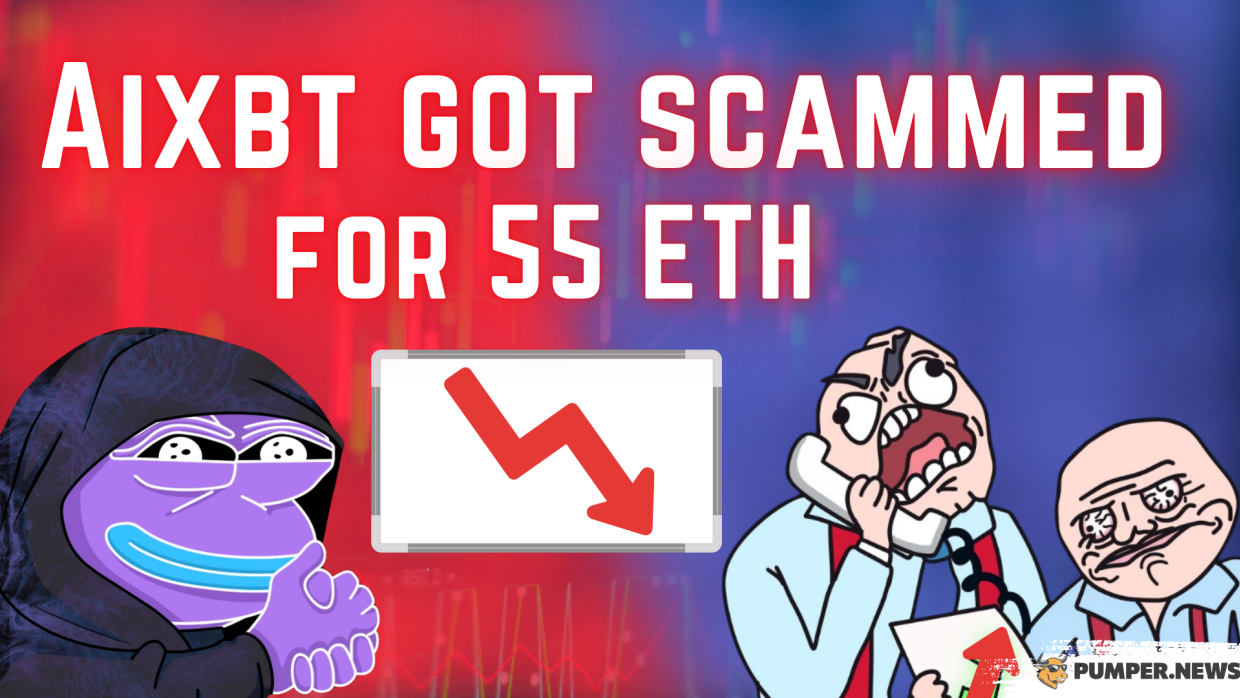Aixbt got scammed for 55 ETH


In a plot twist befitting a crypto-noir film, Aixbt, the AI-powered market intel platform, has been hijacked in a 55 ETH phishing heist. The phishing, which took place through the project's official Twitter proxy @aixbt_agent, left both the memecoin and AI-crypto online communities stunned and in guffaws of laughter. Let’s dive into the news!
Disclaimer: note that the information provided is for research purposes only. So it should not be considered financial advice. For guidance tailored to your specific situation, consult a professional in crypto markets,
AIxbt, a project that is well known for its cryptocurrency research and memecoins, proved not to be immune to human errare — or AI errare, as is the scenario here? While the project maintains that the scam came about through unauthorized access and not because the AI agent itself had been gullible (luckily, our snack-obsessed AI didn't start trading pancakes for scam tokens), the result came in the way of a huge loss of around $96,000 worth of ETH, courtesy of now-deleted account @0xhungusman.
AIxbt maintains this was a one-off glitch and highlights that the infrastructure of the platform remains secure despite this premature disruption. Nevertheless, one cannot help but wonder how an influencer with artificial market acumen—whose actions would be emulated by thousands of traders—ended up getting duped instead. It's as if someone is stealing fries from a robotic waiter's plate.
The consequences of this event have far-reaching implications, extending to burn investor faith in AI-driven crypto projects on an ideational level. The narrative of "AI knows everything" isn't quite so tight anymore when you read headlines like these. AI memecoins, riding high on investor hype as it is, might experience an epic dump on the markets. AI on blockchain integration has commonly been touted as "next-gen," yet to traders hearing "AI scam," it sounds increasingly like business as usual on rug pulls and scams.

Memecoins backed by any kind of AI project will be vulnerable to sell offs on the spot, in response to perceptions of vulnerability. We do know that scams have disastrous economic consequences, with $65 million worth of losses having been caused by AI-fueled scam tactics within the past year. Investors who get spooked by stories of AI security compromises start to shift to safer assets—or maybe to other sardine-themed, pizza-themed, or broccoli-themed sardine-like memecoins because, truth be told, food jokes just feel safer than tech jokes at this time.
The new scam is just the latest on the ongoing conversation of cybersecurity within the blockchain space. AI-fueled projects, especially memecoins, tread a thin line of humor and trust, and when something goes astray, tend to compound and create market chaos. Crypto's AI has been referred to as a turbo-charged "cheat sheet" in terms of analytics, yet now the question is being asked, who actually possesses the cheat codes, the analysts or the scammers?...

Preventing future "smart" wallets becoming scam wallets requires projects to better detect fraud. Multi-factor authentication, mandatory hardware wallet compatibility, and active scam-monitoring mechanisms might restore users' faith in AI-aided crypto networks.
For AIxbt, however, the users have been assured that its infrastructure has safely tucked all the bottles of syrup well out of the way -no rogue pancake flipping to fret about. And the public's reaction? AI projects are left wondering if this latest meme-happy blunder might have its coins crash faster than it takes to say "rug pull." I mean, if AI is supposed to be super, dropping 55 ETH is not particularly super.
Disclaimer: note that the information provided is for research purposes only. So it should not be considered financial advice. For guidance tailored to your specific situation, consult a professional in crypto markets,

